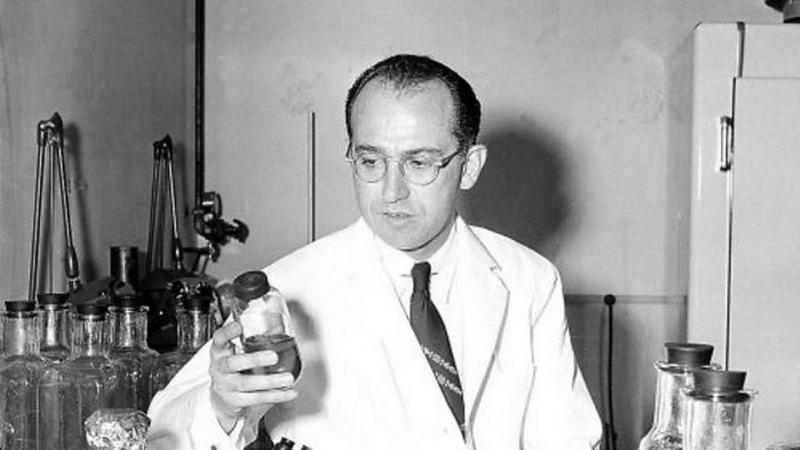
The News & Observer | February 24, 2019
Sixty-five years ago, the polio vaccine developed by Jonas Salk was tested in a landmark efficacy trial. Participants in the trial were called “Polio Pioneers,” and families lined up to receive a vaccine they hoped would prevent their children from contracting this terrifying disease that can cause paralysis and death.
The trial was successful and the deployment of this and later vaccines against polio reduced the disease to a memory for most people in the U.S., highlighting the ability of vaccines to control diseases that once threatened the lives of our children. Despite the vaccine’s success, however, polio still exists and resistance to vaccination is among the factors delaying total eradication.
Unrest around vaccination is nothing new and protests against vaccination have gone on for more than a century, targeting nearly every vaccine medical science has developed. Anti-vaccination societies campaigned against the use of smallpox vaccination in the 1800s and 1900s by claiming lack of efficacy and safety, and by decrying the imposition on personal liberty that mandatory vaccination imposes. Despite these claims, independent reviews of the data found the vaccine was safe and effective and, fortunately, concerted efforts by the World Health Organization and many people worldwide allowed us to eliminate smallpox in 1977. It’s safe to say that no anti-vaccine protestor regrets the extinction of that disease.
We are now in another era of resistance to vaccination and we are seeing how pockets of poor vaccine coverage have created fertile ground for the recent measles outbreaks in the Pacific Northwest, New York and Texas. Resistance to vaccination arises from many factors, including religious objections, a belief that vaccine-preventable childhood illnesses are not severe, that having natural infection is “better” than vaccination or that vaccines cause harm to the growing child’s body. Unfortunately, these measles outbreaks have highlighted how quickly a disease thought to be gone from modern America can spread from some other part of the world, leaving parents scrambling to find ways to protect their children from one of the most contagious viruses known.
When an infectious disease is a clear and present threat, convincing people of the benefits of vaccination against it is relatively easy. Once you have seen a child turn blue and his own ribs break during a case of whooping cough, a vaccine makes sense. When you see blindness and mental retardation due to congenital rubella, a vaccine makes sense.
It is important to note that while vaccinations are generally very safe, all medical interventions and inaction carry risk. Side effects such as injection site soreness, mild fever or aches can happen as the immune system responds to the vaccine and the body develops defenses. This is not unlike exercise, where soreness of the body heralds the increased strength and stamina that is to come.
Very rarely, more severe side effects can happen, just as they can with other medical interventions. But the data show the risk of vaccination to any healthy individual person is very low, and we know the consequences of these diseases when they occur can be severe. Vaccination spreads a low, but not zero, the risk to the population at large to prevent serious diseases from spreading and causing devastating outcomes.
This directly confronts a cherished American viewpoint — that individuals have the right to make choices for themselves and can decide what is best for them. As a doctor, I am sympathetic with this up to a point.
But we have laws that limit freedoms to protect both individuals and the greater community. And we have a civic duty to protect those among us who are at risk, not just children. As the polio vaccine proved 65 years ago, vaccination is a lifesaver. And with each subsequent vaccine, we have proven that broad immunity protects so many among us: infants, the elderly, cancer, and transplant patients, among others.
Part of our responsibility is to help protect those who cannot protect themselves, and that is another cherished American ideal.
Dr. M. Anthony Moody is an associate professor of pediatrics and immunology at the Duke University School of Medicine and chief medical officer at the Duke Human Vaccine Institute